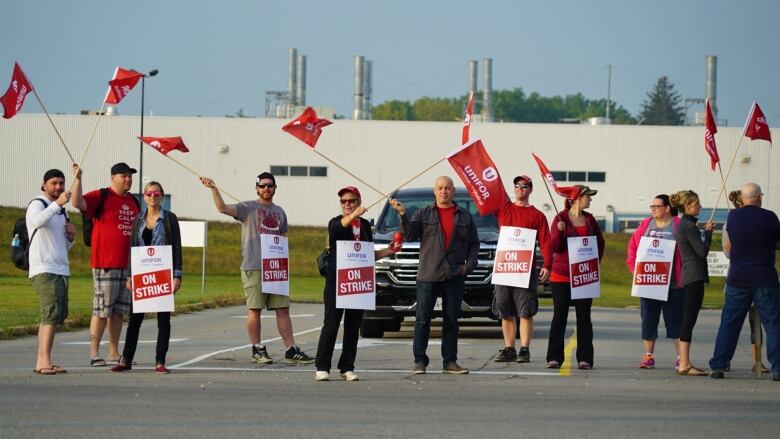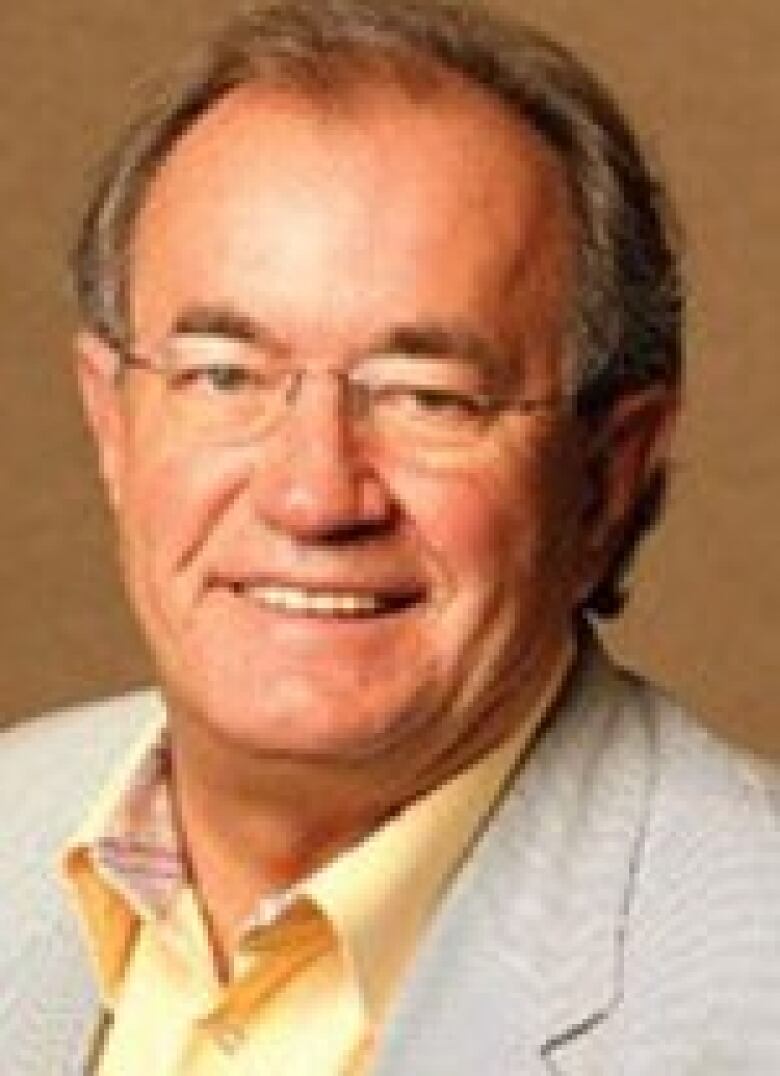GM not respecting CAMI workers: Buzz Hargrove
Former CAW national leader says the Canadian government has to play a key role labour disputes

As 2,800 auto workers continue to walk the picket line in Ingersoll, a former labour heavyweight says the Canadian governmentmust double-down on fighting American right-to-work legislation during NAFTA negotiations.
- CAMI negotiations: why Unifor could have the upper hand
- CAMI Strike will 'affect everyone' in Ingersoll, workers say
Although the auto industry has shrunk since he was national president of the Canadian Auto Workers -- and that union is now part of Unifor, which represents the striking workers -- Buzz Hargrove said Tuesday what remains of the auto industry in Canada is quality work.

The former union leader is now the executive director of the Centre for Labour Management Relations at the Ted Rogers School of Management at Ryerson University.
The last strike by auto workers in Canada was in 1996, when Hargrove was CAW president. Back then, 26,000 workers from plants across Ontario and Quebec walked off the job.
The Chevrolet Equinox, produced at theCAMIplant, is a best-seller and the production plant has won international accolades. Hargrove said itgivesUniforbargainingpower but doesn't guarantee victory.
That,Hargrovesaid, will requirepressure from the Liberal government duringNAFTAnegotiations.
"You have the Trump administration fighting to bring work back to the United States," Hargrove said. "The only way that can be stopped is if the federal government takes a much stronger stand on trade.
"Hopefully, coming out of NAFTAdiscussions, they will have done that, including forcing the United States to bring in a federal law banning right-to-work as a major subsidy to the auto manufacturers and auto parts manufacturers."
American states with right-to-work legislation allows people in unionized workplaces to opt out of being in the union and having to pay union dues, but still keeping the benefits of the union.
That starves unions of needed cash and makes those states more attractive to corporations, critics say.
Reports say it's one of the asks from the Canadian government during the NAFTAnegotiations going on this month.
"You can't allow companies to build where it's the cheapest and then ship into our market. That applies to GM, Ford, Fiat Chrysler, the Japanese and the South Koreans. If you want to sell in this country, you have to give us a fair share of production," Hargrove said.
Official talks on hold
Meanwhile, negotiations between Unifor and GM Canada have stalled, with no new talks on Tuesday.
"While General Motors of Canada and ourUniforpartners have made very positive progress on several issues over the past weeks, the company is disappointed that we were not able to complete a new agreement," said General Motors in a statement Tuesday provided to the CBC.
"We encourageUniforto resume negotiations and to continue working together to secure a competitive agreement."
St.Catharinesworkers 'nervous but supportive'
Union leaders representing about 400 workers at GM plant in St. Catharines who work on the production line that makes transmissions for the Chevy Equinox are bracing themselves for a shutdown.
About one-third of the workers at the St. Catharines plant work on the Equinox transmissions, said Tim McKinnon, the union chairperson of the plant there.
"If it (the strike) goes on after this week, we will be on shutdown," he said. "We're nervous but supportive."












_(720p).jpg)


 OFFICIAL HD MUSIC VIDEO.jpg)
.jpg)



























































































